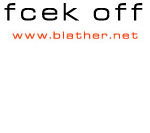Getting to grips with Hiberno English at home and abroad…
An earlier incarnation of this article appeared on smug.com in December 1997, under the nom de guerre of Rev. Hellshaw. I’ve re-edited and updated it slightly since then.
On my tiny island home of Ireland, populated by a paltry 4 million and equipped with just four TV stations (not including the north), we suffer continuous bombardment by the British and American media – the former having a far more direct and immediate influence. The Republic of Ireland was part of the British Empire until the end of the War of Independence in 1921, though it took us into the 1940s to full extricate ourselves, and gain full sovereignty. And I’m not about to get into any kind protracted discussion about Northern Ireland…
The two island have swapped residents in both directions for as long as they have been dwelt upon. On top of this, it’s possible to receive BBC, Channel 4, and other U.K channels on practically any TV set located on the east coast of Ireland with nothing more than a bunny-eared aerial. Most metropolitan cable providers carry the ‘foreign’ channels, and local satellite systems allow more rural areas to access the celestial networks. With such a miniscule smattering of humans, there’s a obviously a proportionately tiny media community, and hence Irish TV stations are forced to rely heavily on overseas material, including content from the United States.
This doesn’t stop the likes of RTE from demanding massive TV license fees to aid it’s crumbling semi-state bureaucracy… but I digress.
We are not alone in this, most European mainstream TV stations have a massive amount of U.S. TV programming, and most of the big box office movies here are from Hollywood, because, bizarre as it may seem to people on the western side of the pond, Europe is obsessed with the United States, just as the United States is obsessed with Europe.
One of the consequences of this cross-pollination of language from west to east is how ‘Americanisms’ have invaded all European languages, some so deep that their origins are difficult to trace exactly, unless one is well versed in etymology. We now, like hey dude, talk shit, hang out, crash over, freak out, get fried, get trashed, ’cause we’re hip, cool, and it’s soooo like, okay?
Hiberno English
Despite this, I find myself continuously explaining my turns of phrase to folks outside Ireland, especially when I say things that are meant as innocent humour or irony, but they are misconstrued as anger or offensive behaviour. Although Ireland’s by now (in)famous diaspora have reached all corners of the globe, it is only now that the folks left at home are starting communicate directly to the outside world, on our own terms, especially because of the ‘net. And we of course have our own dialect, Hiberno English, which can tip conversations in great cacophonies of confusion.
For reason best explained by historians, in Ireland we speak English as a first language, and so the usual slang of that language follows; going out and getting pissed in Dublin or London means doesn’t entail anger (theoretically anyway) – but at this side of the Atlantic it certainly does mean getting ossified, lubricated, langers or just plain drunk, but in a particularly Irish context, it can be great craic.
Craic, incidentally, isn’t cocaine, it’s a simple Irish word that is a distillation of the energetic and insane atmosphere of a socially successful night on the town, specifically, in a pub. An individual reputed for his or her good humour and charming wit may be referred to as being ‘great craic’. And no person ever encountered by yours truly was misfortunate enough to make an ass of themselves, unless they were providing donkey impressions, but I have had the ill-luck to fail in my avoidance of several complete arseholes. Or perhaps that’s a little harsh, they were certainly amadáns (fools), eejits (idiots) or gobshites at the very least. Gob literally means ‘beak’ , but is more pejoratively used to mean mouth. I’ll refrain from assailing anyone’s intelligence by explaining the implications of this rather subtle term.
Chancers
Of course, any Irish person worth their salt is guilty of the sin of ‘ligging’. In Irish (Gaelic) ‘lig mé isteach’ literally means ‘I let myself in’, so around Dublin, of a night, a ligger is someone who manages to get into everything free, as they typically know someone one ‘on the door’ of every venue. Someone who does well by sheer audacity and has a permanent couch on the luck plane is known as a ‘chancer’, especially if their luck is propped up with some dodgy dealings. ‘Isn’t yer man a right chancer?’
Recently, the Irish media, and entire legal profession has been kept busy with an endless stream of long-running tribunals, some of which focus on various financial scandals. Most of those in the spotlight, political and business animals like Liam Lawlor, George Redmond, Denis O’Brien and Ray Burke – could best be described as chancers. The simple brown paper envelope has become symbol of shady dealings and grubby money. Some chancers just went too far.
Stay tuned for the Tribunal Tribunal, investigating the lucrative tribunal industry.
 |
| Buy the FCEK OFF T-Shirt! |
Feck
The huge popularity in Britain of the sitcom, ahem, TV Comedy Father Ted – surrealist escapades of three Irish Catholic priests exiled to a remote island off the west coast of Ireland – brought several Irishisms into common use over the water, and one in particular *back* into common usage in Ireland: ‘feck’. This word doesn’mean the same ‘fuck’, but can be used as a more – for all intents and purposes – polite version.
Mothers would slip a ‘feck’ in front of the kids, I mean children, rather than use an expletive. ‘Feck off!’ doesn’t mean ‘fuck off’, but rather, ‘you’re kidding me’, or ‘get outa here’, or put in slightly more polite Irishness, ‘get away outa that!’. Curiously enough, it has other uses, we used to go feckin’ apples when I was a child, or at least when I was a younger child. No, we weren’t desperate to passionately copulate with the neighbours’ Cox’s Orange Pippins, but instead we were liberating these fine fruits from their desperate bondage at the hands of a cruel orchard owner. A ‘fecker’, on the other hand, could be a slightly more slimy eel than a chancer. And then there’s durty feckers, who are a dreadful shower altogether.
-
Feck1 /fεk/ v., to steal (Compare with Early Modern English fek < ‘fect, by apheresis from effect, to accomplish a desire). ‘Don’t turn your back on that or he’ll have fecked something on you, make no mistake about that!’ (BC, Meath). Joyce, Finnegans Wake, 425.23: “Gaoy Fecks.”
-
Feck2 /fεk/ int., euphanism for ‘fuck’. ‘Feck off with yourself!’ Leonard Out After Dark, 53: “a shrill, complaining creature who would tell her mammy if you said ‘Jasus’ or ‘feck'”; McDonagh, The Cripple of Inishmaan, scene ii, 6: “Billy: A fecking eej, is it?”; scene ii, 11: “Helen: Are fecking coming, you fecker?”
-
Fecker /’fεk&schwa;/ n., (Colloq.), term of abuse: perhaps a euphanism for ‘fucker’. Roche, A Handful of Stars, I, i, 6: “Tony: Yeah, he’s a queer smily fecker, ain’t he?”
All three quotes from A Dictionary of Hiberno-English by Terence Patrick Dolan
From Amazon.com »
From Amazon.co.uk »
Howareye?
I was told of a bunch of young German tourists, who were out in the arse end of nowhere in the Irish countryside. They happened upon a local oul fella (an aged rural gentleman), who greeted them with a customary ‘how are ye?’, but before they had time to reply, had done a Keyser Soze, and vanished down the road.
They were understandably perplexed, not realising that everyone round here greets one another with ‘howareye?’ i.e. ‘how are you?’ or ‘howszitgoin?’ (how is it going?). These strange questions, especially from someone you’ve never levelled your eyes on before, are merely a form of ‘asking after’ one’s health, i.e enquiring into their well-being, to which the customary answer is to either ask the same in return, or to reply in the positive, for instance ‘oh, I’m grand, thanks’. Whether or not you are scraping at death’s door for mercy at the time of interrogation is entirely irrelevant.
So, the next time a person you’ve met before offers you craic, asks questions without needing answers or simply tells you to ‘feck off’, relax, have a pint or something. They’re probably just from Ireland.
